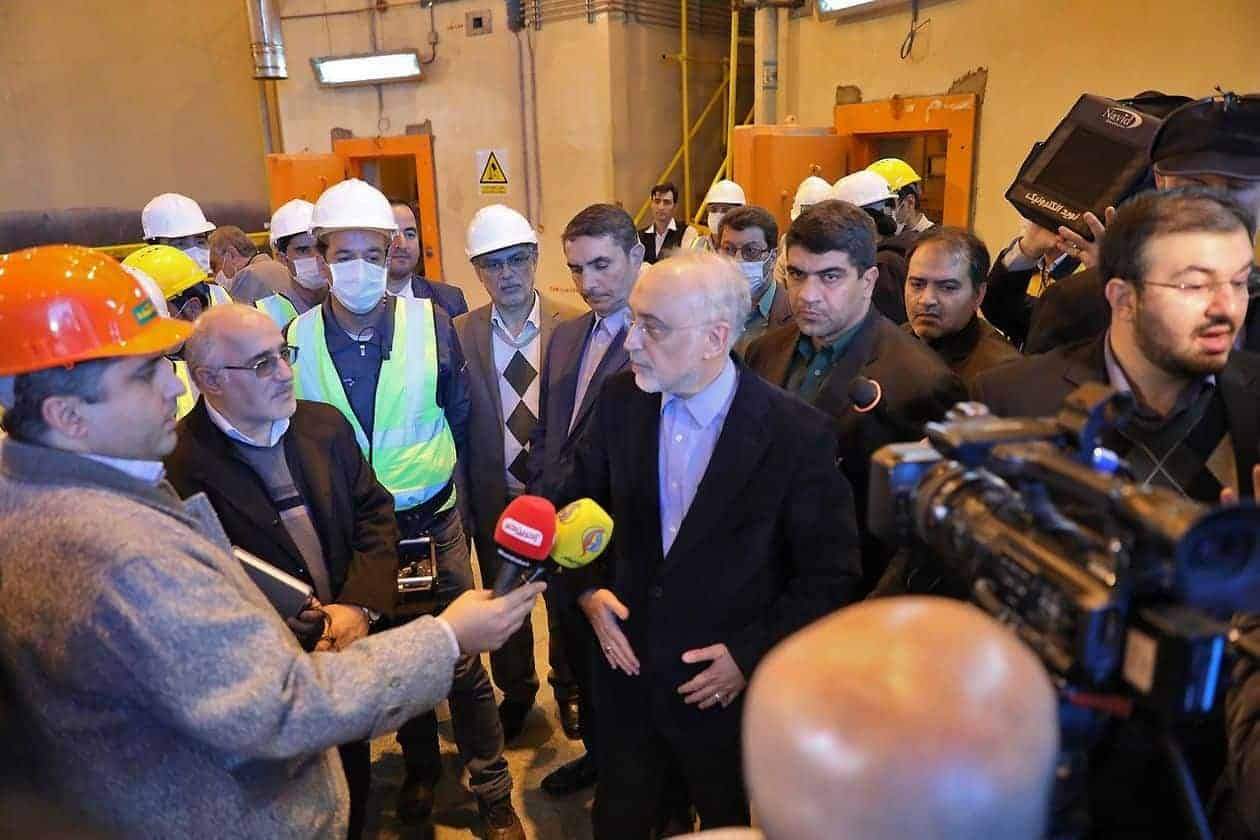Iran Is Dealt a Blow by U.N. Over Nuclear Activity, Fueling U.S. Opposition

Member states from the United Nations atomic agency board voted Friday to condemn Iran for failing to cooperate with its probe of Tehran’s nuclear activities, a move that gives Washington fresh ammunition in its push to kill the Iranian nuclear deal.
The resolution drafted by three European powers called on Iran to “fully cooperate with the Agency and satisfy the Agency’s requests without any further delay.” Tehran has stalled for months on giving International Atomic Energy Agency inspectors access to two sites and answering questions about a range of nuclear activities in Iran.
The IAEA probe mainly concerns nuclear work Iran did in the early 2000s, long before the 2015 nuclear deal, although the agency says Iran moved to cleanse traces of those activities as recently as 2019. The agency says Iran’s failure to grant access to the sites is also out of line with Tehran’s commitment to permit widespread inspections agreed in the deal. Twenty-five countries from the 35-member Board of Governors voted in favor of condemning Iran’s lack of cooperation, however Russia and China voted against and other countries abstained.
While U.S. officials said they had pushed for stronger language calling out Iran, Friday’s vote is the first formal decision by the IAEA’s board since 2012 to criticize Iran for not cooperating with the agency. It is the culmination of more than two years of efforts by Washington and Israel to pressure Iran to open up about its past nuclear work and it could open the way for the issue to be escalated to the U.N. Security Council.
“The IAEA has confirmed Iran is denying access to two of its past nuclear sites,” U.S. Secretary of State Mike Pompeo said on Twitter earlier this week. “This unprecedented obstruction is deeply concerning and unacceptable. The international community must demand that Iran cooperate immediately and fully with the IAEA.”
Russia and China, veto-wielding members of the U.N. Security Council, voted against the condemnation. They remain participants, along with Britain, France, Germany and Iran, in the 2015 nuclear deal. President Trump withdrew the U.S. from the nuclear agreement, which strictly constrained Iran’s nuclear activities for at least a decade, in May 2018.
Friday’s vote is the latest steppingstone in U.S. efforts to push for an end to the nuclear deal. The Trump administration wants Tehran to sign up to a new, tougher and broader-ranging accord. In response to sweeping U.S. sanctions, Iran has abandoned compliance with many of the nuclear constraints imposed in the 2015 accords, although IAEA inspectors continue to have broad access on the ground.
The U.S. is pushing for the indefinite extension of a conventional arms embargo that was supposed to end in October under the deal. U.S. officials have warned that they will move to kill the nuclear deal unilaterally at the UN Security Council if the embargo isn’t extended, a move that Russia and China say would be illegal and European powers worry would completely cripple the Security Council.
As the vote results came in Friday, Britain’s foreign office said the French, British and German foreign ministers will meet in Berlin to discuss Iran.
Those talks, among the first in person top-level diplomacy in Europe since the coronavirus crisis, will focus on “the importance of finding a diplomatic solution to de-escalate tensions, holding Iran to account for its destabilizing regional activity and keeping the door open for Iran to find a peaceful way forward.”
Corrections & AmplificationsU.S. officials have warned that they will move to kill the nuclear deal unilaterally at the U.N. Security Council if the embargo isn’t extended. An earlier version of this article incorrectly said U.S. officials have warned that they will move to kill the nuclear deal unilaterally at the U.N. Security Council if the embargo isn’t lifted. (Corrected on June 19)
Photo: The head of Iran’s Atomic Energy Organization, Ali Akbar Salehi, center, visited a nuclear water reactor at Arak, south of Tehran on Dec. 23. Iran has been criticized for not cooperating with a probe of its nuclear activities. - AGENCE FRANCE-PRESSE/GETTY IMAGES




